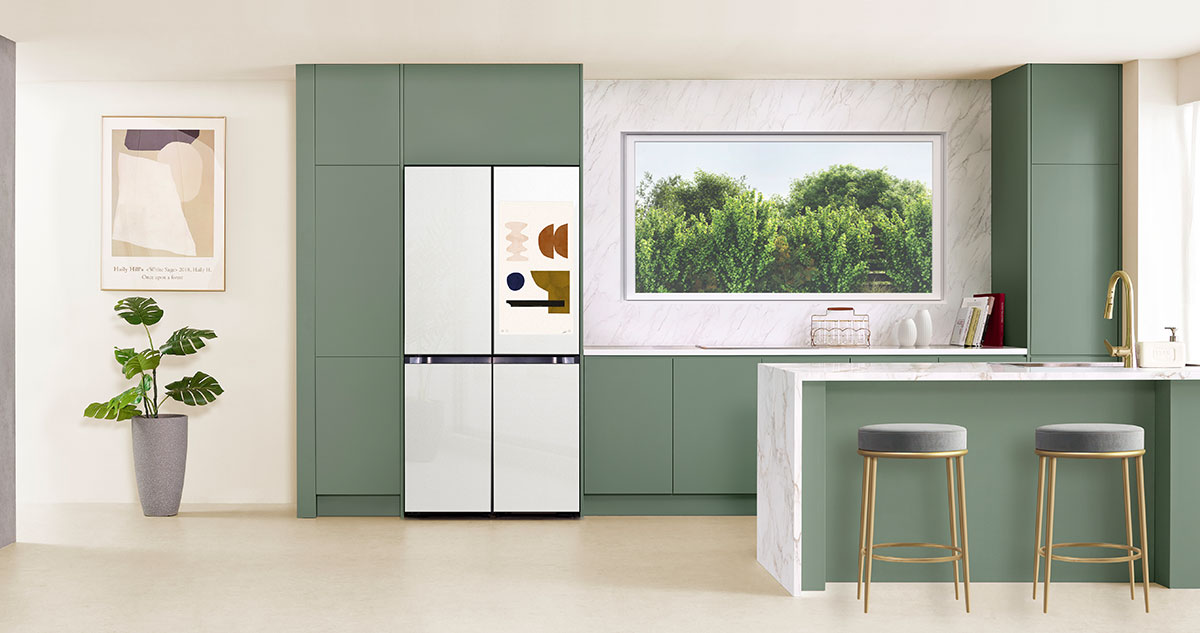
The kitchen is no longer just a space for cooking; it’s becoming a hub for cutting-edge technology. Samsung’s latest AI-powered refrigerator takes innovation to a new level, acting as a grocery assistant and a meal planner. Equipped with Vision AI and integrated with Instacart, the smart fridge can track inventory, suggest recipes and even handle same-day grocery delivery.
This transformative appliance not only redefines convenience but also raises questions about how smart home technology is reshaping daily life. With features designed to streamline household management, Samsung’s fridge could signal a broader shift toward AI-driven sustainability while offering a highly personalized approach to make life easier when it comes to that age-old question, ‘What’s for dinner?’
The tech behind the transformation
At the core of Samsung’s new smart refrigerators is Vision AI technology, which uses internal cameras to monitor food inventory in real-time. According to a Samsung press release, this system can identify items inside the fridge, track when essentials like milk or eggs are running low and sync with Instacart for quick replenishment. With just a few taps on the fridge’s digital touchscreen display, users can approve a grocery list and arrange delivery on the same day.
The refrigerators also feature an upgraded AI Family Hub Plus, which connects with the Samsung Food app to generate recipes tailored to the items you already have. Users can further customize these recipes based on dietary needs such as vegan, gluten-free or pescatarian preferences. The app can even link to your Samsung Health profile for a more personalized approach to meal planning.
Convenience meets sustainability
Beyond convenience, Samsung’s smart fridges aim to address broader concerns about food waste and energy efficiency. By tracking expiration dates and issuing notifications, these appliances encourage users to consume items before they spoil. Additionally, the integration of AI Hybrid Cooling technology optimizes energy usage, adapting to cooling demands based on the fridge’s contents. This feature not only extends the freshness of perishable foods but also aligns with Samsung’s commitment to sustainability, as detailed in their CES 2025 announcement.
Potential challenges and ethical concerns
While the technology offers undeniable benefits, it also raises valid concerns about data privacy and user dependency. The internal cameras and Vision AI capabilities mean that fridges are collecting data about household eating habits. Critics argue that this information, if not handled transparently, could be used for targeted advertising or other intrusive purposes. Additionally, there’s a question of how dependent users may become on these appliances for day-to-day decisions, potentially reducing personal engagement in tasks like meal planning or grocery shopping.
A glimpse into the future of home technology
Samsung’s AI-powered smart fridges represent a significant leap forward in how we think about household appliances. By combining convenience, personalization and sustainability, they offer a look into the future of smart home technology. However, as with any technological advancement, a balance between innovation and ethical considerations must be sought after.
These refrigerators are not just about keeping food fresh—they’re about reshaping how we interact with our kitchens, further blending AI seamlessly into daily life. As Samsung continues to innovate, the evolution of these smart appliances will undoubtedly influence how households worldwide manage their food and energy consumption.
Photo courtesy of Samsung




